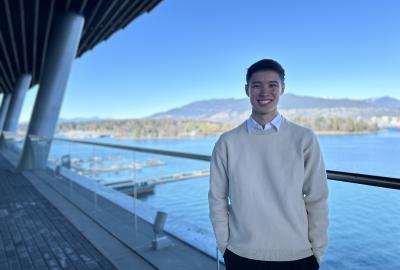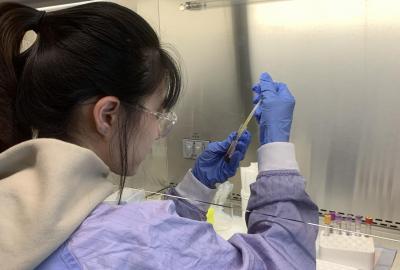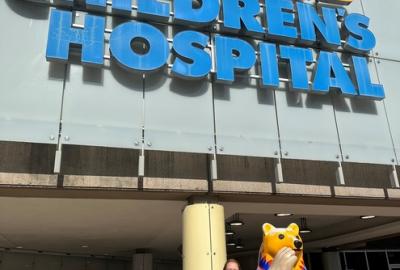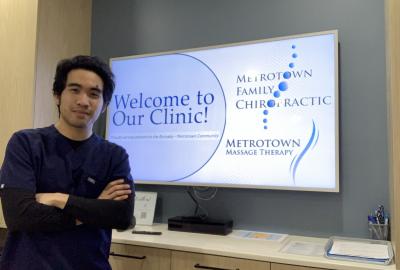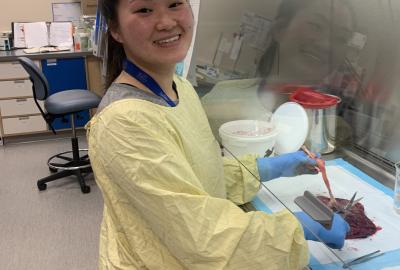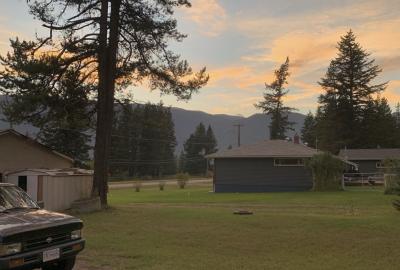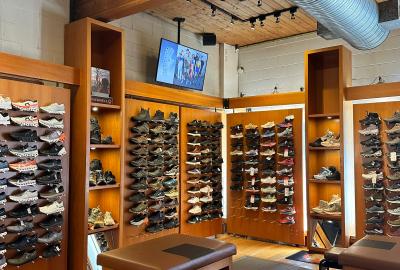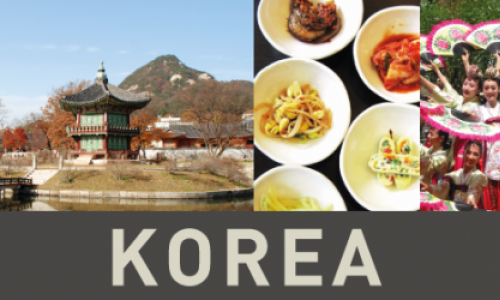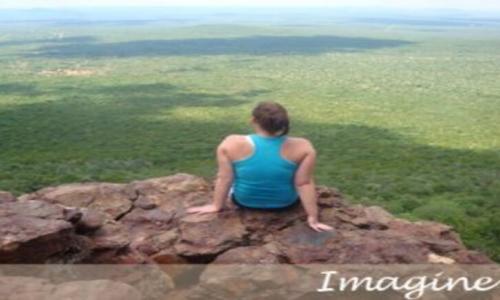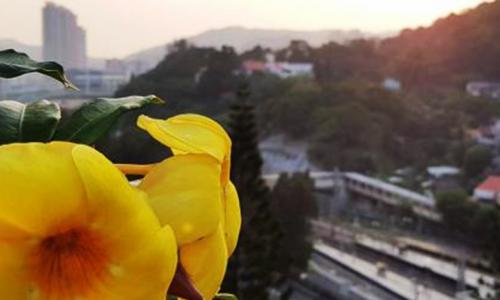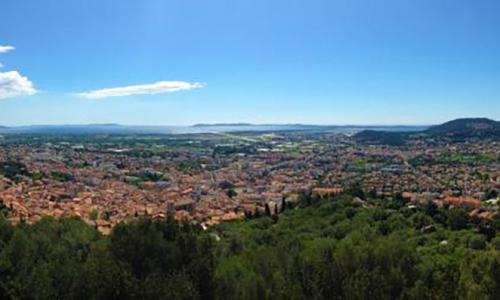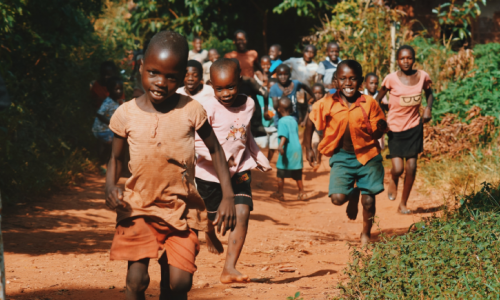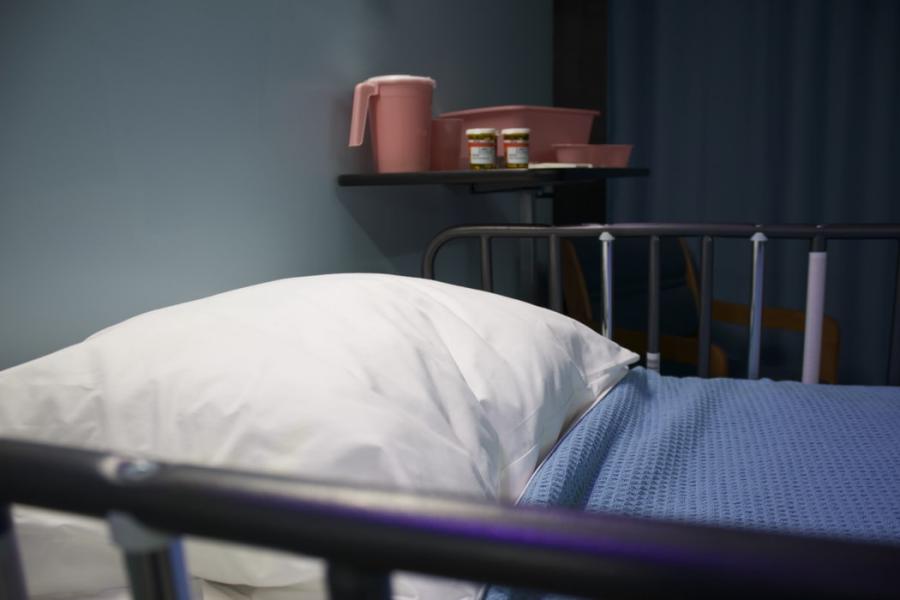
Kayla Donnawell, an SFU Kinesiology student, is no stranger to International Co-operative Education. Prior to leaving for her third international experience in Botswana, Kayla completed two co-op terms: as a research assistant for the Divers Alert Network in Durham, North Carolina and in Georgetown, the Cayman Islands conducting stingray research.
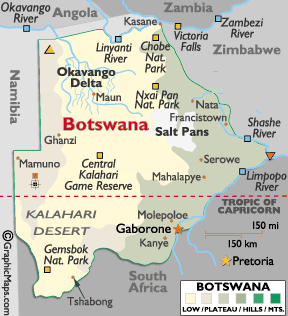
Currently, Kayla's newest co-op experience is in Botswana, Africa with the Students Without Borders program (SWB), administered by the World University Service of Canada.
I'm in Botswana (a little landlocked country just North of South Africa...still confused, just pull out your friendly classroom atlas). I'll be here for the next few months working at a hospice that cares for HIV/AIDS patients. I thought I would share a little about the things I've seen and done since I've been here.
Life here is different, I hardly know where to start, but here are a few highlights:
-
Everyone here knows how to speak English (for the most part), but everyone converses in Setswana, a native language that definitely does not share any linguistic roots with English. For example, the word "Hi" in Setswana is "Dumjala" Learning names here is near impossible because I just can't seem to comprehend the pronunciation of names with four consonants in a row, but I'm sure it will come with time.
-
I get everywhere by combi, these fabulous little VW vans inevitably crammed full. Being stuffed into these little sardine cans wouldn't be too bad if it wasn't 35 degrees. To top it off, being the only white girl in the combi always gets you a few good looks, but it is always better if you can get three white girls in the combi, in fact, it is sure to be an entertaining ride in which we are a huge joke.
-
The traditional food here is kind of like porridge, when you eat it you feel like there is a brick sitting in your stomach. It is absolutely tasteless. What is better is the main food group in this country is beef, beef and more beef.
Life in Gabs (short for Gaborone) is a little different. Things here can be pretty sketchy; you have to be really careful about where and when you go. Going anywhere at night, even one block, unless by taxi is completely out of the question. There is a guard outside our house at night, and the house has an open-air courtyard in the center which is surrounded by an 8-foot cement wall topped with barbed wire...sound dangerous yet? It's not too bad, I think a lot of it is just for show, but it's a really interesting environment to live in and it teaches you to be very street smart.
I've met some great people since I've arrived, and definitely seen a few things that I will probably have nightmares about for a long time. There are definitely some positives that shine through on a daily basis. For example, yesterday, I spent the day in Old Naledi, the poorest region of Gaborone. We meet with sixteen your old girl who has a child. The sixteen-year-old mother has never been to school. We were there to get information from her so that we can recommend her as a candidate to be funded to be sent to school.
In North America, we are so privileged, that the idea of someone never going to school and not being literate is incomprehensible. My perception of literacy and how important it really becomes apparent to me when we asked the young mother to sign the form to recommend her for school funding. She didn't even know how to write her name. It actually came down to her "making her mark" on the page.
On my first day at work, we went out to the garbage dump to try and find a child that needs to be enrolled in school. She was orphaned two years ago because both of her parents have died of AIDS, and her grandmother could no longer care for so many children. No one was there for her to ensure she could go to school. I can still remember how the stench crawled up my nostrils as we walked around the garbage dump; it was the most awful violent smell I've ever encountered. The worst part is that when we arrived, we did not find just one child, we found hundreds of people. There were actually cardboard houses set up on top of mountains of garbage. They usually find one dead body per day in this garbage dump. Imagine living and then dying in a garbage dump.
I know that I can not even begin to explain what I have seen, but I would love to share my experiences. Until next time, take a moment to appreciate that you can spell your name and sleep in a warm safe bed every night.
Beyond the Blog
-
Find out more about the Biomedical Physiology and Kinesiology Co-op Program.
-
Find out more about working internationally through the International Co-op Program.
-
Get articles, student work term profiles, discussions and information on upcoming International Events on the OLC’s International Opportunities Page.

